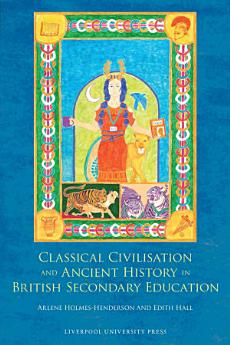Classical Civilisation and Ancient History in British Secondary Education
About this ebook
In the UK A-Levels and GCSEs in Classical Civilisation and Ancient History offer exciting avenues through which to access the cultures of people who spoke ancient Greek and Latin, and their neighbours, across the ancient Mediterranean and Black Sea worlds. They are inherently interdisciplinary, offering an outstanding opportunity to study a civilisation in the round, using diverse sources from literary and philosophical texts to legal documents, inscriptions, art, architecture and archaeology. Yet many people are either unaware of the existence of these courses, or do not understand their contents. This unprecedented study, by two Classics Professors at the University of Durham with extensive experience of teaching in schools and HEIs, charts the subjects’ historical development and emergence in their current form since the mid-20th century, explaining and illustrating their contents. It describes the skills and competencies that they confer, which are valued by university admissions offices and employers alike. It presents the results of interviews with several significant participants in the story of these classical subjects and of questionnaires filled in by many additional teachers and students. It also offers practical advice on how to introduce Classical Civilisation and/or Ancient History at secondary level, with guides to bibliographical and other resources.
About the author
Edith Hall FBA, Professor of Classics at Durham University, has previously taught at Oxford, Cambridge, Reading, London, Leiden and Northwestern Universities. She has published more than thirty books and is co-leader of the campaign Advocating Classics Education. She regularly broadcasts on television and BBC Radio and acts as consultant to professional theatre companies.
Arlene Holmes-Henderson MBE is Professor of Classics Education and Public Policy at Durham University. She specialises in the teaching and learning of classical subjects and regularly provides expert advice to international governments on curriculum and assessment design. She is founding director of Durham’s Centre for Classics Education Research and Engagements (CERES) and is co-director of the Advocating Classics Education project.






